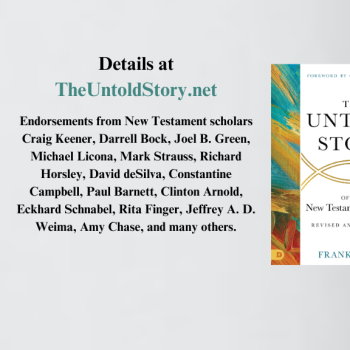Few Mormons know what Advent is. Even fewer celebrate it. Our liturgical calendar is much more 19th-century, New England Protestant than it is Catholic or Orthodox from any century. In other words, it's pretty bare. That's natural considering that most of our earliest converts came from New England or somewhere nearby. But our spare liturgy leaves lots of room for what Krister Stendhal called "holy envy," room for us to see something in the religious lives of others and wish we had something like it. At this time of year it means that we can learn something from others' celebration of Advent.
Consider some readings from a traditional liturgy for the last several weeks. First James 5:7-8: "Remain patient, brothers, until the Lord's advent [parousia]. See how the farmer waits for the earth's choice fruit and is patient with it until the fall and spring rain. You too be patient; set your hearts firmly, for the Lord's advent is near."
At the Lord's parousia he makes himself actively present, and we wait patiently and firmly for him to do so, just as a good farmer is patient and constant, waiting for the rain to water his crops. James's analogy makes it clear that patience does not mean mere passivity. The farmer waits patiently for the rain, but his heart—the whole of his being—is also set firmly on the coming of the rain and what it will make possible. So as he waits he doesn't neglect the work that his farm requires if it is to produce.
Second, Psalms 46:10: "Be still and acknowledge that I am God."
Josef Pieper, a too-much-neglected mid-20th-century German philosopher, translates this "Have leisure [Muße] and know that I am God" (Leisure the Basis of Culture, xv). His translation may surprise us, but its point is that to know God we must step back from our busyness—as much as from our contention—and recognize God's sovereignty. We cannot hear what God has to say if we are not ready to hear, receptive to a message that may be different than we expect. And we cannot hear what God has to say if our attitude is one of mastery (of our lives, of our families, of the things around us, of society . . . ) rather than being mastered. Our busyness may make it impossible to see or hear the kingdom's revelation in our lives. Traditionally this verse of Psalms is understood to promote contemplation as the antidote. In contemplation we wait patiently to hear, our hearts firm and constant though we do not know in advance what we will hear.
Finally, Romans 1:6: "You are those called of Jesus Christ."
Latter-day Saints are familiar with the language of calling. Bishops often call people to service in the congregation; missionaries and stake presidents are called to their work. To be a Mormon is to have a calling. But I imagine that few of us think of being a Christian as a calling. Paul does. He has been called to be an apostle; we have been called to be Christians, to take on ourselves the name of the Messiah.
Reading these scriptures together: Christians are called to patience, constancy, and stillness, to contemplative, expectant waiting on the coming of Jesus. To be a Christian is to find oneself called always to be in Advent.
Mormon scripture tells of this ongoing expectation of the Messiah's coming: in the premortal existence the Son of God comes to the Father's plan for humanity with the words "Here am I, send me" (Abraham 3:27); with other Christians we celebrate his coming in the meridian of time (Moses 6:57; 62); and with many we wait for his final, apocalyptic coming (D&C 38:8; 39:20-21).





